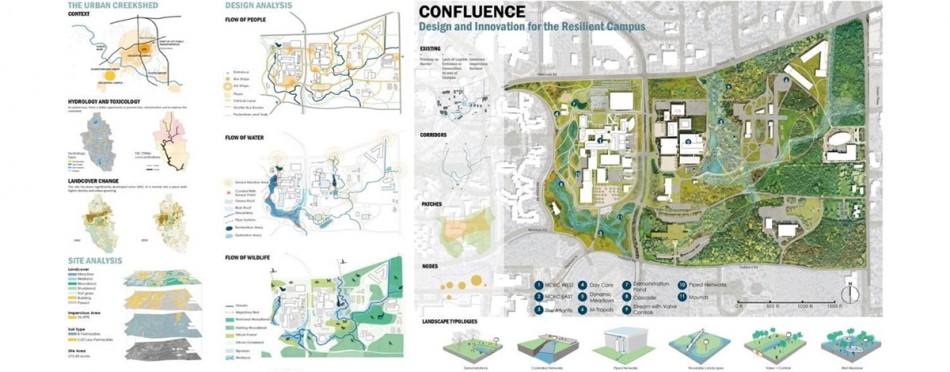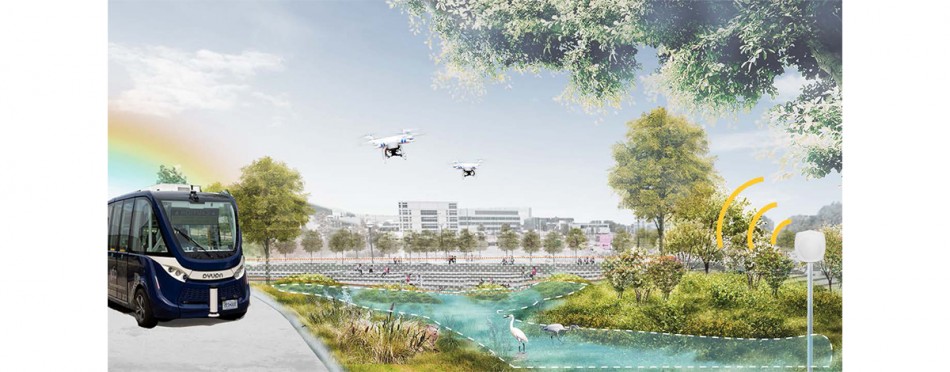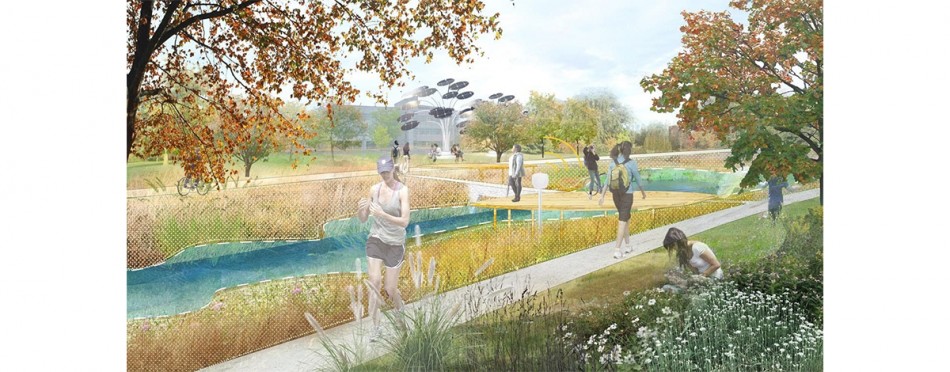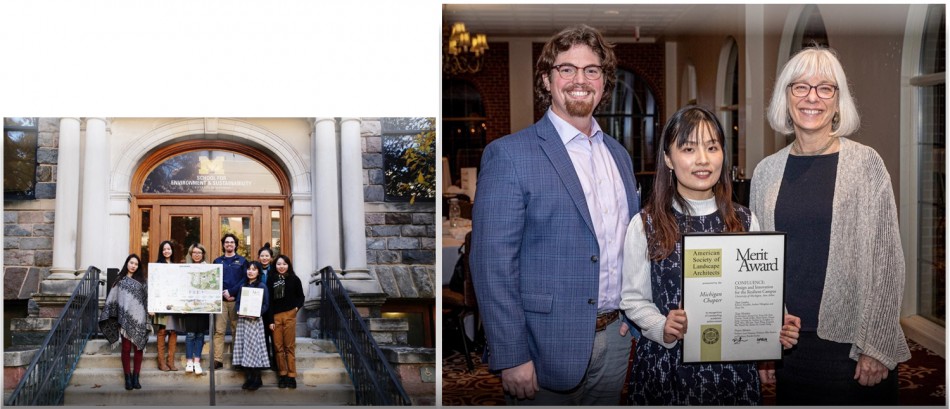
Student ASLA Merit Award-2018
Design and Innovation for the Resilient Campus
The team developed the masterplan, confluence, through a collaborative and interdisciplinary team consisting of landscape architecture, environmental engineering, and natural science students. Situated at a critical juncture point in a heavily impacted urban creekshed, the North Campus Research Complex (NCRC) at the University of Michigan has the potential for outsized benefits to be resilient to climate change and responsive to surrounding natural features, while becoming a new core of campus life.
The proposed interventions use autonomous mobility as the catalyst to redefine the role the suburban campus plays in the architecture of the university and surrounding communities. Based on thorough analysis from the watershed to the site scale, the team imagined a dynamic and responsive network, structuring flows of people, water, and wildlife into novel and adaptive patterns.
Confluence is where people, water, and nature meet, softening the edges between the natural and built environment. Harmonizing the relationships between advancing technologies and a changing climate, the team proposes a campus that not only serves the research complex, but also as a cultural, educational, and technologically responsive future landscape.
Team leaders: Roberto Astudillo, Andrew Tillinghast, and Chuyi Yin.
Team members: Ian Bernstein, Xinxin Cao, Evan Gill, Evan Granito, Derell Griffin, Alexis Heinz, Zixuan Jiang, Soyoung Jin, Xuehan Li, Zonghao Li, Yiran Shen, Aini Sun, Xinyi Wang, Jingyuan Wu, Daniel Xie, Kanyu Yu, Liwan Zhang





